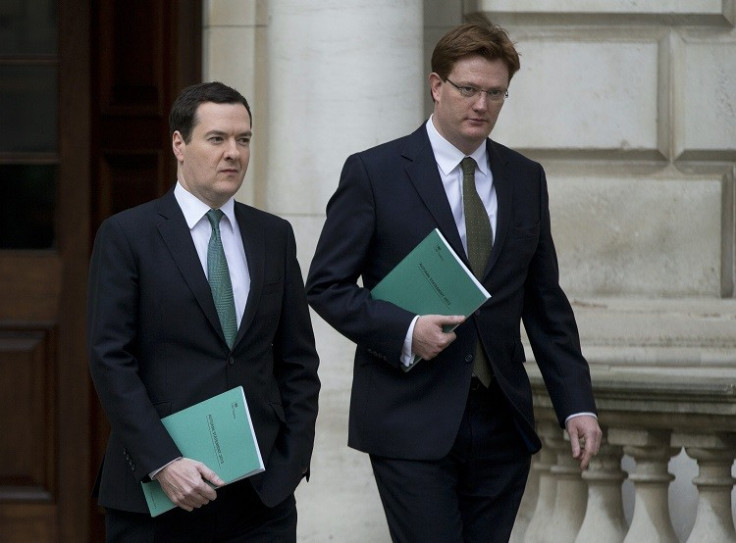UK Just Half Way Through Age of Austerity as Spending Cuts Set to Deepen

Britain is only half way through the "Age of Austerity" as it was once dubbed by Prime Minister David Cameron, with billions more in spending cuts to come until at least 2019.
According to an analysis of Chancellor George Osborne's Autumn Statement by influential thinktank the Institute for Fiscal Studies (IFS), the UK is only 46% of the way through the fiscal consolidation needed to close the hole in public finances.
The IFS said Osborne's plans for the years to 2019 implies a further 20% cut in total public spending cuts. It means an acceleration in the rate of public service spending cuts, from 2.3% a year between April 2011 and March 2016, to 3.7% a year between April 2016 and March 2019.
To avoid this acceleration, an extra £12bn a year would need to be chopped off welfare or other Annually Managed Expenditure up to 2018/19.
Osborne has stuck rigidly to fiscal neutrality in his Autumn Statements and Budgets, to ensure that spending is matched by cuts or increased tax revenues.
In his latest Autumn Statement, Osborne outlined a number of new spending commitments and tax cuts, including a cap on business rates increases and free school meals for all young primary school children, among others.
He also outlined new measures to tackle tax avoidance as well as an increase in the bank levy.
"The chancellor continues to make specific promises on spending increases whilst stating that he will keep total spending at the same level," said Paul Johnson, director of the IFS.
"He can't keep doing that. And whilst the costs of his tax cuts are pretty definite, the benefits from his anti-avoidance measures, and indeed of the increase in the bank levy, are rather less certain."
Osborne has embarked on an austerity programme of public spending cuts in order to erase the structural deficit in UK finances, built up under the previous Labour administration.
However, having originally planned to complete this work within one parliament, he was forced to extend the cuts after the unforeseen eurozone crisis triggered a renewed global downturn in 2011.
This weighed heavily on the UK economy, causing tax receipts and output growth to fall well short of forecasts.
The Office for Budget Responsibility (OBR) predicts the deficit will be completely erased in 2018/19, when there will be a small surplus in public finances.
Paul Johnson, director of the IFS, said we must "not forget the scale of the cuts in spending still to come".
"By the end of 2013-14 DELs (that's Whitehall spending on public services) will have been cut by just over 8%," said Johnson.
"Absent further welfare cuts, or tax increases, plans to 2018-19 now imply cuts of more than 20% in total public service spending. This would actually imply an acceleration in the rate of public service spending cuts - from 2.3% a year between April 2011 and March 2016, to 3.7% a year between April 2016 and March 2019.
"Simply to avoid such an acceleration in cuts in this kind of spending would require cuts in welfare (or other Annually Managed Expenditure) spending of a further £12bn a year by 2018-19."
© Copyright IBTimes 2025. All rights reserved.






















